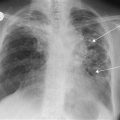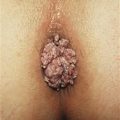Faecal Incontinence
Faecal incontinence implies loss of voluntary control of passage of faeces from the anus. Faecal soiling of the clothes occurs, which is socially embarrassing for the patient. Any disease process that interferes with rectal sensation or affects function of the anorectal musculature may produce incontinence. However, incontinence may still occur with normal sphincters and pelvic floor, for example in severe diarrhoea.
History
Is there a history of trauma, e.g. pelvic fractures, impalement injuries? Probably the commonest cause of faecal incontinence is gastroenteritis. The history will be obvious. A history of inflammatory bowel disease may be elicited. Other important factors to elicit in the history are recent anorectal surgery; recent difficult childbirth – long duration of labour, forceps delivery, forceful delivery, perineal tears, episiotomy; predisposition to peripheral neuropathy, e.g. diabetes mellitus, vitamin B12 deficiency, alcoholism or medication. A history of constipation may suggest faecal impaction. A history of a recent stroke, dementia or neurological illness will usually be obvious.
Examination
Soiling of the underwear may be apparent at examination. Digital rectal examination will demonstrate any reduction in anal tone and the inability to sustain a voluntary contraction. It may be possible to feel the defect in the anorectal ring. Faecal impaction may well also be obvious on digital rectal examination. Is there any evidence of trauma or infection? Rectal prolapse may be apparent or descend during straining. Look for evidence of a fistula-in-ano or extensive anorectal cancer. Full neurological examination will often be necessary.




